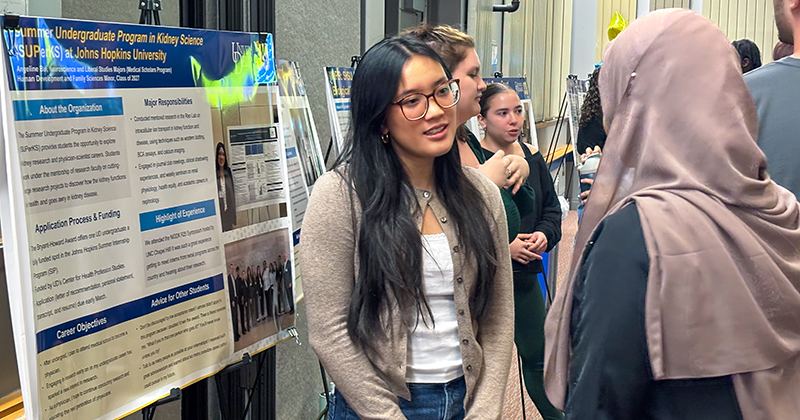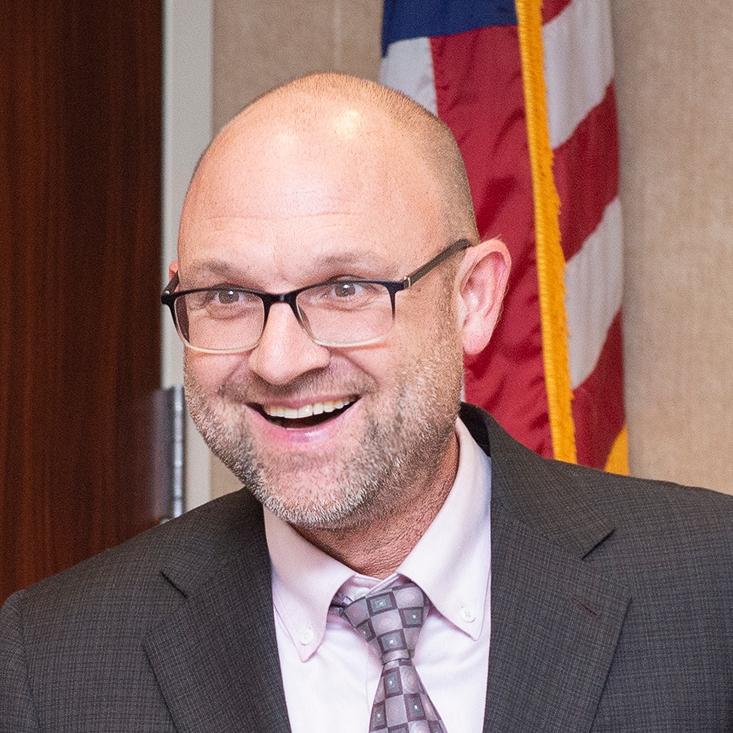
Undergraduate Programs
Welcome to the Department of Sociology & Criminal Justice
The Department of Sociology and Criminal Justice at the University of Delaware administers separate undergraduate programs in sociology and in criminal justice as well as honors degrees in both disciplines.
Sociology is the study of social organizations, social change and the social causes and consequences of human behavior in the modern world. It teaches a distinctive way of looking at society and offers unique insights into social behavior through research and other opportunities for experiential learning. The sociology program offers a liberal arts curriculum that integrates theory and methods with courses focusing on contemporary social issues and problems.
The criminal justice program offers a liberal arts approach to crime, law and justice that integrates theory, research and legal analysis. Students develop the analytic tools to address the real-world challenges of the criminal justice system and prepare for the widest possible range of life ambitions and career goals.
EXPLORE OUR underGRADUATE PROGRAMS
Earn a Double Major
Did you know that one out of every five criminal justice majors are also psychology majors? Many UD students opt to pursue a double major that aligns with their career goals and personal interests in specific disciplines. Sociology and criminal justice students often major in both disciplines, and some choose to add a minor in emergency management. Others decide to add a major in psychology or political science. In addition to building an expanded skill set and diverse viewpoints, double majors increase their marketability with prospective employers as well as career opportunities.
Programs and Concentrations
Sociology students can analyze any social issue or social problem, such as family life, street crime, education, war and peace, gender relations, homelessness, poverty, immigration, or substance abuse. They learn theories of social structure and employ research techniques to collect and analyze data.
Undergraduate students draw on their strong theoretical foundation to examine issues facing emergency and environmental management professionals. This concentration provides students with broad, interdisciplinary education, drawing from relevant courses in economics, geography, communications, geology, history, political science, public policy, and anthropology. They also receive practical, in-field experience with public and private agencies.
The concentration in health & health services is a robust, exciting, and engaging area of study. The curriculum covers the socio-demographic, cultural, political, and ethical contexts that underlie health behavior and health policy. These ideas are particularly relevant in today's context, with the changing social and political landscape of healthcare.
Courses emphasize the social determinants of health and health disparities. Topics include health policy, gender, the environment, bodies, race, and aging. Graduates enter fields of medicine, public health, social work, non-profit, public policy, research, and health advocacy.
Law has been a central focus of sociology since its founding as an academic discipline. The social sources of legal thought, the development and organization of legal institutions, the variety and practice of legal professions, and relationships among law and social justice are core issues in the courses in the law and society concentration.
Students build on their foundation of methods and social theory with interdisciplinary courses on a range of law and society topics. During the practicum, students experience and observe the practice of law in such settings as Delaware Family Court, private law firms, legal advocacy agencies, and law enforcement.
The law and society concentration provides an excellent education for those interested in applying to law school or graduate school; and for those pursuing careers in law-related fields such as law enforcement, administration of justice, social justice, and business.
Sociology majors with the social welfare concentration are prepared to work with diverse and multicultural populations with an understanding of how social issues affect different communities. Courses focus on urban communities, racial identity, juvenile delinquency, economic and social inequality, gender, and mental health. Students receive practical, in-field experience with social service agencies where they work for approximately 160 hours under professionally trained supervisors.
Graduates can pursue careers in social services, policy analysis, mediation, and advocacy. They may also pursue an advanced graduate or professional degree.
Available to students in UD's Honors College, the honors degree and honors degree with distinction are comprehensive enriched undergraduate degree experiences. Students complete all requirements for the sociology B.A. and, where appropriate, the concentrations. They must also meet the University's requirements for the honors degree.
Students interested in a career in teaching at the middle school or high school levels (grades 7 to 12) may wish to consider the sociology education major offered through UD's Social Studies Education Program. Some majors choose advanced degrees in sociology, either M.A. or Ph.D., which typically lead to careers in college teaching or research.
Students must earn at least 18 credits for a sociology minor. Check UD's Undergraduate Catalog for current requirements and course information.
The University of Delaware’s criminal justice program prepares undergraduate students for law school, graduate school, or a career in the administration of justice. Criminal justice students study law enforcement, the judicial process, juvenile justice, corrections, and the criminal law. To reflect the structure, ideas, and concerns of society, the program draws from a variety of disciplines, with courses in sociology, political science, psychology, and history. Graduates achieve the skills and breadth of knowledge expected of well-educated individuals in a complex and pluralistic society.
Courses in the law and society concentration explore the social sources of legal thought; the development and organization of legal institutions; the variety and practice of legal professions; and relationships between law and social justice.
Students build on their foundation of methods and social theory with interdisciplinary courses on a range of law and society topics. Students in the field placement course experience and observe the practice of law in such settings as Delaware Family Court, private law firms, legal advocacy agencies, and law enforcement.
The law and society concentration provides an excellent education for those interested in applying to law school or graduate school; and for those pursuing careers in law-related fields such as law enforcement, administration of justice, social justice, and business.
Available to students in UD's Honors College, the honors degree and honors degree with distinction are comprehensive enriched undergraduate degree experiences. Students complete all requirements for the criminal justice B.A. and, where appropriate, the law and society concentration. They must also meet the University's requirements for the honors degree.
UD class behind prison walls

‘Inside-Out’ facilitates dialogue despite differences
No hoodies or sweatpants. No jewelry except wedding or engagement rings and small stud earrings. No phones. No pencils or blue pens — only black ink pens.
UD's innovative class held behind prison walls is changing lives of both UD students and their incarcerated classmates.
-

Celebrating experiential learning
October 27, 2025 | Written by Natasha KapadiaMore than 90 UD students shared their internship experiences at a Student Success Center symposium. -
UD ranks among nation’s best universities
September 23, 2025 | Written by UDaily staffPsychology program recognized in U.S. News & World Report's 2026 rankings -
Missions to accomplish
August 27, 2025 | Written by Adam S. Kamras and Cori BurchamNew Fine Arts and sociology graduate students among those sharing their goals
Do you have questions about academic planning, connecting with an advisor, transferring credits, or finding an internship? Meet with UD's Student Success Center in the College of Arts & Sciences for answers to all your questions. Team members specialize in academic and advising services and co-curricular coaching. Also get to know the UD resources available to all UD students. Check out the links below for Academic Tools, Advising Central, and Policies & Procedures.









